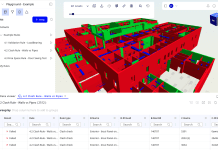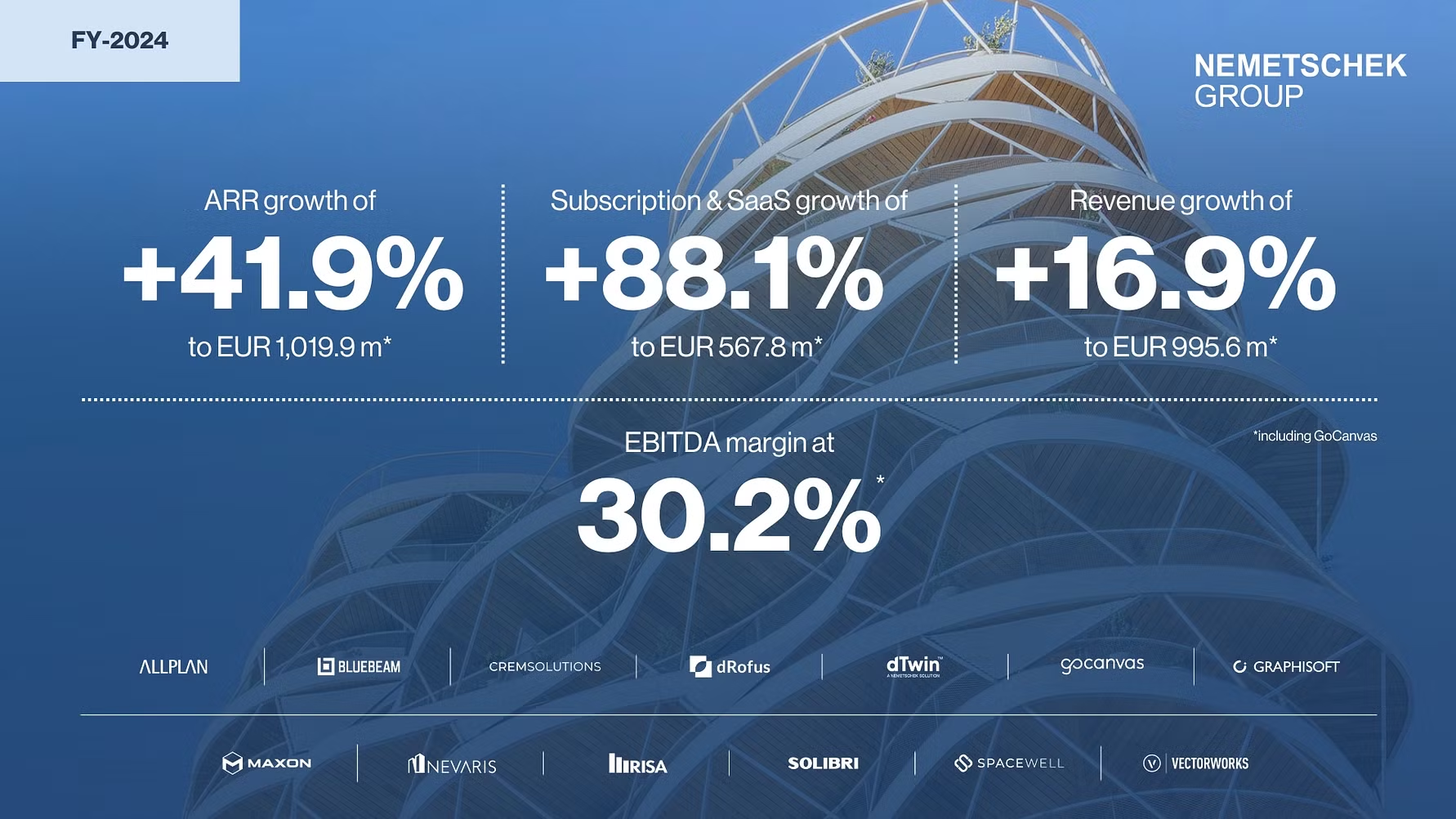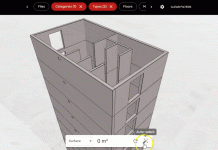BIM4Water has published its Roadmap for the next five years, defining a strategic pathway forward for BIM within the UK water sector and adoption into a national digital twin
Formed in 2013, BIM4Water is one of the most established and progressive groups driving BIM adoption across the UK water sector. Based in the UK, it is made up of experts who have volunteered their services to create standards and promote adoption of best practice across the industry. Its membership is continuously growing and includes UK and overseas partnerships.
BIM4Water’s mission is “to lead, drive and support organisations to realise value through the digital transformation of the water sector”. BIM4Water has eight Task Groups working on specialist areas of interest. Each group is formed from members spanning the industry. The groups’ activities are overseen by the BIM4Water Steering Group and moderated by BIM4Water’s secretariat, British Water. BIM4Water forms part of the wider BIM4 communities, in association with the UK BIM Alliance.
BIM4Water chair Jamie Mills and vice-chair Clare Kovacs talked to BIM Today about the journey to the new Roadmap.
How did BIM4Water deliver this new Roadmap and what does it mean to the group and the direction of the water industry moving forward with digital transformation?
Jamie Mills (Global BIM manager, Xylem):
Despite the challenges over the pandemic, especially not being able to undertake our regular activities of knowledge sharing at our quarterly events, the publication of this Roadmap is a proud achievement for the group. What’s more impressive is how this instrumental piece of work has been delivered by the team in remote working conditions, reinforcing our capabilities to work digitally.
Looking at the Roadmap, we can see how each of the Task Groups set out to deliver their milestones in support of a common goal.
For example, working on an industry objective, such as data interoperability, we can show that each of the Task Groups has a role to play in delivering a workable solution.
The aim is that each Task Group deliver its outcomes to provide an integrated approach which supports and complements the other groups. The BIM4Water Roadmap documents the relationship between the Task Groups through our workstreams and milestones.
The work done within BIM4Water is undertaken by experienced members that volunteer their time for free, who are dedicated individuals supported by their employers. We need to acknowledge their contribution and the support given by their companies. In particular, Arup, who provided resources to facilitate the workshops and create the Roadmap for publication.
BIM4Water also received fantastic support from the experts at the Centre for Digital Built Britain (CDBB) in providing technical assistance and ensuring alignment with their own work. The production of the Roadmap was overseen by British Water to ensure we acted with transparency. A real team effort.

BIM4Water vice-chair Clare Kovacs (National rehearsal lead, MWH Treatment):
We initially worked with CDBB, myself, Jamie and the BIM4Water Steering Group, to agree there should be five core workstreams to achieve a desired end goal and that this outcome would complement our existing mission and also align to a Roadmap vision for BIM4Water:
BIM4Water Roadmap workstreams:
- Digital transformation.
- Knowledge.
- Leadership.
- Communication.
- Governance.
BIM4Water Roadmap end goal 2026: BIM4Water wants to achieve a “golden thread” of information/granularity of all data throughout all governing stages of project delivery, from initiation to operability. Also targeting academia ensuring we capture the feed point and skill requirements of the industry ensuring successor planning for the future.
BIM4Water’s Roadmap vision is to enable the water industry to digitally transform, achieving high performing asset project delivery from strong collaborative foundations to integrate communication, transparent data management and integration, promoting smarter and more sustainable choices, ultimately helping the customer.
With agreed workstreams and a clear end goal, we enlisted support from the CDBB experts to assist both the Steering Group and leaders from all the Task Groups in a series of workshops to define and agree the key areas of deliverables for the next five years, and how these will support the overall BIM4Water objectives. With support from the team at Arup, these were aligned, finding synergies and common drivers across the Task Groups. In doing this, we were able to identify key milestones within the relevant workstream and against programme delivery dates. To monitor progress on the delivery of the Roadmap, we have monthly reporting meetings so we can review and monitor our progress against our targets.
In doing all this, we strengthened collaboration across the Task Groups and created a shared vision for our industry. What I find personally impressive is how the Roadmap workstreams come together to set a clear direction to drive change and make a difference. This is something the water sector should be proud of and we will share with other sectors through the UK BIM Alliance Communities (BIM4s, Regions and Affiliates), including other forums at home and abroad.

Dr Anne Kemp OBE, chair of the UK BIM Alliance and technical director at Atkins, said: “The way that BIM4Water organises itself – and the Roadmap in itself – is a great working example for all the BIM4s. Increasingly, as the UK BIM Framework sets the overarching agenda, individual sectors need to be driving an agenda for change.
“Sharing and documenting our learnings is a vital part of helping the industry as a whole to progress – no mean feat which none of us underestimate.
“The BIM4Water Roadmap presents shared challenges and, as such, I am sure we will all benefit from its insights. Many thanks to all those involved in this important work – the alliance as a whole looks forward to supporting BIM4Water as it progresses through the Roadmap.
“Working together, we certainly aim to support as much of the industry as we possibly can, in the most practical terms!”
Mark Enzer OBE, head of the National Digital Twin Programme and CTO at Mott MacDonald, said: “I’m really excited to see how BIM4Water plans to advance the benefits of BIM in creating robust information models and then progressing that agenda towards interoperable data sharing and supporting a national digital twin.
“Working with CDBB has already had a positive impact on that journey and will inevitably create value for the industry. I admire how the water industry is pulling together towards a shared end vision.”
Dr Matthew West OBE, technical lead for the National Digital Twin Programme and founder of Information Junction, added: “BIM4Water is a leading example of sector collaboration and clearly recognises the importance of developing a solid foundation to an industry framework for secure data sharing. This will ensure that in the future the right information can be made available at the right time, to the right people and that the data shared is fit-for-purpose. The BIM4Water Roadmap and task groups present a coherent direction for delivering this.”
Jamie Mills
Chair
Clare Kovacs
Vice-chair
BIM4Water
https://www.britishwater.co.uk/bim.aspx
Twitter: @BIM4Water
LinkedIn: BIM4Water















There needs to be more support for clients and less colourful paperwork. I support 5 water supply clients and their EIRs are atrocious.
Asking for things they don’t want and cant work with a lot of the framework stuff this year e.g. COBie which two have admitted isn’t what they want or simply focussing on modelling and not on specific requirements. So much waste